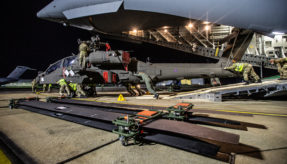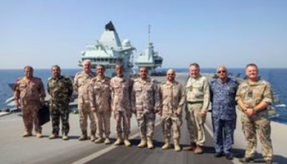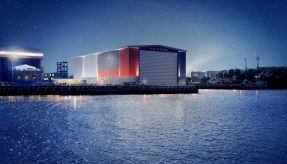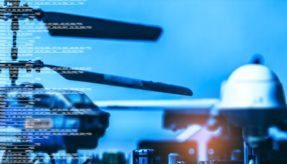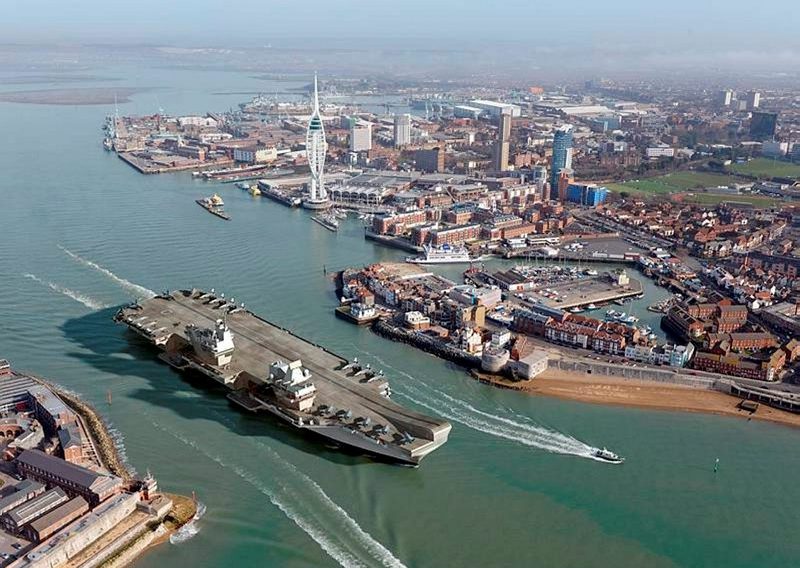
The National Audit Office has today released its findings on the MODs Carrier Strike programme.
The NAO has been investigating the MOD progress on delivering the new aircraft carriers as well as their strike capability. This will be the third report from NAO on Ministry of Defence progress, with the last report (in 2013) looking at the highest-risk phases of construction and integration, with the integration phase still to come.
The current report examines how the Department has managed the programmes and handled the technical, cost and schedule risks since 2013. It also outlines the challenges the Department faces in reaching the first milestone of an initial Carrier Strike operating capability by December 2020.
Highlights from the report state that while the MOD has clear plans to deliver Carrier Strike operational capability by 2020, and good progress is being made, however it notes that the programme is entering a period of challenges that will need to be overcome to deliver the capability. The integration of the capability along with crews, supporting infrastructure, logistics, communications and surveillance is crucial over the next three years. All these elements need to be tested and integrated in preparation for deploying Carrier Strike in 2021.
Delayed for three months due to technical issues, the inaugural sailing of the first carrier is expected in summer 2017. The MOD has acknowledged the delay but is still confident that delivery will be achieved end of 2017. The build phase of the second carrier is progressing well, and the carrier is expected to leave Rosyth dockyard in 2019.
Progress has also been seen the purchase of Lightning II jets and Crowsnest, providing jets and helicopters to fly from the first carrier. Other capabilities that need to be in place are improvements to Portsmouth Naval Base and RAF Marham, and these are currently underway, however, the office notes that logistics, communications and survelliance, on which Carrier Strike will be reliant, are yet to be established.
One of the major issues highlighted by the NAO in the report is the increasing pressure on a few highly trained personnel to operate the capability and the need to fill staffing gaps, in both specialist, intelligence and military roles. To minimise the impact of these gaps on Carrier Strike, the Department is prioritising it and carrying out targeted recruitment.
On costs, the NAO has noted that the core programmes have remained stable since 2014, but forecast costs of supporting and operating Carrier Strike are less certain. There is a Aircraft potential cost growth of between 1% and 2% on the £6.212 billion approved cost of both carriers. The Department has not accepted this increase and is working with the Alliance to minimise any cost growth. Spend costs could also change if foreign exchange rates shift.
Introducing Carrier Strike will fundamentally affect how the Navy works. It will need to move away from deploying single ships to using a significant proportion of its fleet to support and protect the carriers. Before the Department can operate the carriers and jets together as Carrier Strike, there will be an intensive period of training, trials and further work. This period is crucial to ensure crews can safely operate the equipment and give the Department confidence the capability works as intended. The Department has examined the feasibility of deploying Carrier Strike before December 2020 and advised against it in anything other than an operational emergency.
Amyas Morse, head of the National Audit Office, said today: “The Department has made good progress and clear plans to achieve an initial Carrier Strike operating capability by December 2020, but it still has a lot to do as it brings together the equipment, trained crews, infrastructure and support. Problems in any of these areas could mean use of the carriers is delayed or reduced.
“The programme will shortly move into a high-risk period of trials, testing and training which may affect plans and increase costs. The closely timed sequence of tasks offers no further room for slippage and there remain significant risks to value for money.”
Image: © Crown Copyright. A CGI of the new aircraft carrier leaving Portsmouth Naval Dock.
If you would like to join our community and read more articles like this then please click here




